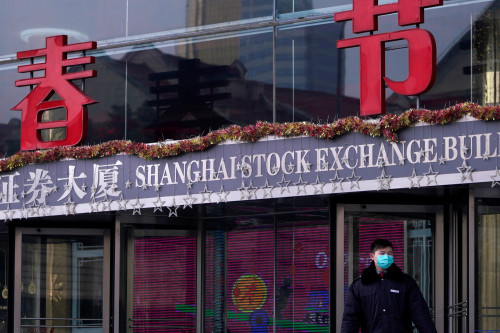By Rodrigo Campos
NEW YORK (Reuters) -Foreigners added just over $26 billion to their emerging markets debt and equity portfolios in September, the lowest since May, with the largest outflow from Chinese stocks since November, signaling investor apprehension toward EMs, according to a report from a banking trade group.
The net $26.2 billion inflow for last month compares with a $47.1 billion net inflow in August and $63.5 billion in September 2024, according to data from the Institute of International Finance.
The data showed a break away from China, as debt from EMs excluding China took in $35.1 billion, the most since February, while Chinese debt posted its first net monthly outflow since January. Chinese equities had their largest outflow since November.
Investors have grown more selective amid tight valuations and China’s renewed weakness, the IIF said. It said sovereign issuance surged to $50 billion in September, led by Mexico, putting the year on track to surpass the 2020 issuance record. Yet most issuance comes from higher-grade issuers and the lower tiers struggle for market access.
The U.S. Federal Reserve cut rates in mid-September for the first time this year, and Wall Street is split on whether it will cut again in both of its two remaining meetings this year, or only in one. Meanwhile, the tariffs and trade war, alongside the war in Ukraine and developments in Gaza, continue to weigh on sentiment.
Bonds continue to attract cash on strong fundamentals and high real interest rates, but the boost from U.S. rate cuts is fading and investors are growing more cautious. There are renewed outflows in stocks, especially in China, and performance now varies more across regions: Latin America is holding up, while Asia and Eastern Europe are slowing.
“With global macro conditions still fragile and geopolitical risks unresolved, EM portfolio flows are likely to remain positive, but increasingly concentrated and conditional,” Jonathan Fortun, a senior economist at the IIF, said in a statement.
Regionally, emerging Asia took in almost $14 billion net last month and Latam followed with $8.2 billion. Africa and the Middle East funneled a net $2.6 billion and emerging Europe lagged with a $1.4 billion inflow.
(Reporting by Rodrigo Campos in New York; Editing by Matthew Lewis)


